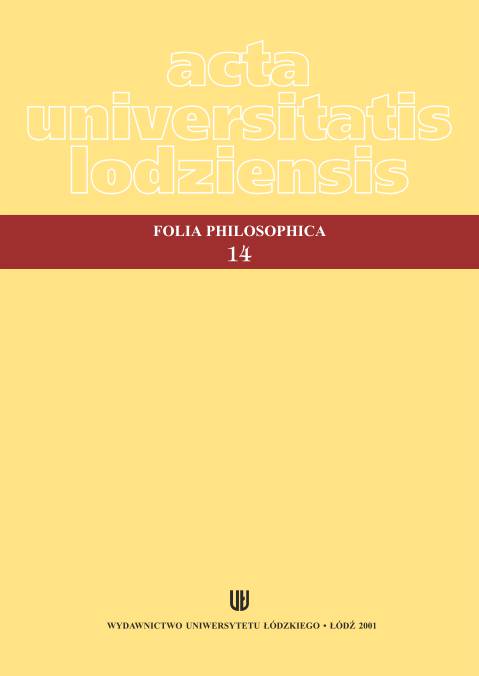Co jest pierwsze i najbardziej podstawowe? Zaczątki filozofii transcendentalnej
DOI:
https://doi.org/10.18778/0208-6107.14.03Abstrakt
The paper presents the sources and the development of the medieval doctrine of transcendentals. In Aertsen's opinion transcendental philosophy of the Middle Ages differs considerably from the ontological doctrine of the Ancients as well as from the modern theory referring to the sphere of cognition. The beginnings of the medieval doctrine of the transcendentals were inspired mostly by considerations concerning primary conceptions of human mind included in Avicenna's "Metaphysica". Furthermore, they were connected with the Aristotelian idea of science, the Boethian axiomatic method of "common conceptions of the soul", and theologians' interest in the horizon of human intellectual knowledge. Beside the Aristotelian-Avicennian reduction to the most universal predicate Albert the Great acknowledge another reduction (originating from the Christian-Neoplatonic tradition): reduction to the first cause. In his opinion, these two resolutions are complementary to each other. In the philosophy of Thomas Aquinas, transcendentals are most fundamental insofar as they are the foundations of theoretical and practical science. The principle of contradiction – considered as the beginning of theoretical science – rests on the understanding of "being", and the first precept of natural law is founded on "the good". The development of the doctrine of the transcendentals in 13th century aloows to call the period "the second beginning of metaphysics" – since it changes the understanding of the proper subject of First Philosophy. In Albert the Great, for example, matephysics ceases to be the science of the divine, and becomes the science concerning what is first and the most fundamental – "being-as-being". In St. Bonaventure's philosophy, the doctrine of the transcendentals undergoes a theologizing transformation: that, which is first in the cognitive order is, at the same time, first ontologically. For Bonaventure, the latter "first" is God.Pobrania
Opublikowane
2001-01-01
Jak cytować
Aertsen, J. A. (2001). Co jest pierwsze i najbardziej podstawowe? Zaczątki filozofii transcendentalnej. Acta Universitatis Lodziensis. Folia Philosophica. Ethica-Aesthetica-Practica, (14), 59–76. https://doi.org/10.18778/0208-6107.14.03
Numer
Dział
Articles
Licencja

Praca jest udostępniana na licencji Creative Commons Attribution-NonCommercial-NoDerivatives 3.0 Unported License.












